

Pasquale Amato (21 March 1878 – 12 August 1942) was an Italian operatic baritone. Amato enjoyed an international reputation but attained the peak of his fame in New York City, where he sang with the Metropolitan Opera from 1908 until 1921.


Pasquale Amato (21 March 1878 – 12 August 1942) was an Italian operatic baritone. Amato enjoyed an international reputation but attained the peak of his fame in New York City, where he sang with the Metropolitan Opera from 1908 until 1921.
Amato was born in Naples and studied locally at the Conservatory of San Pietro a Majella under Beniamino Carelli and Vincenzo Lombardo (who also gave singing lessons to the great Neapolitan tenor Enrico Caruso). In 1900, he made his debut at the Teatro Bellini in Naples as Germont père in La traviata . Engagements followed in Genoa and Rome. Over the next few years he sang in Monte Carlo, Germany, parts of eastern Europe and Argentina. In 1904, he appeared at London's Royal Opera House with the Teatro di San Carlo Company; although well-received, he was not invited back.
He was engaged by La Scala, Milan, and sang there in 1907 under the baton of Arturo Toscanini. His voice had matured by now into a top-class instrument and he was praised for his versatility and artistic integrity. In 1913 he was accorded the honour of taking part in the Verdi centenary commemoration at the Busseto Theatre. He appeared at the commemoration in La traviata and Falstaff with Toscanini conducting. Other important operatic roles which Amato sang in Italy prior to World War I included Amonasro in Aida , Marcello in La bohème , the title part in Rigoletto , as well as Golaud in Pelléas et Mélisande, Kurwenal in Tristan und Isolde , Scarpia in Tosca and Barnaba in La Gioconda .
Amato repeated some of these roles at the Metropolitan Opera, where Toscanini had gone to conduct and where Amato made his debut in 1908. He maintained a taxing performance schedule at the Met until he left the company in 1921, appearing in a number of operatic works that he had not undertaken before. In 1910, for example, he sang in Gluck's Armide , along with Enrico Caruso, Olive Fremstad, Louise Homer and Alma Gluck. In December of that same year, he created the part of Jack Rance in the Met's world premiere of Puccini's La fanciulla del West , singing opposite Caruso, Emmy Destinn, Dinh Gilly and Antonio Pini-Corsi and conducted by Toscanini.
Amato was by now a celebrity, and his return to the United States by ship in October 1912 with fellow baritones Titta Ruffo, Antonio Scotti and William Hinshaw, and soprano Lucrezia Bori, received extensive press coverage. [1]

In 1913, Amato created the title role in Cyrano by Walter Damrosch; Frances Alda and Riccardo Martin were also in the cast. He performed, too, in that year's production of Un ballo in maschera with Caruso, Destinn, Margaret Matzenauer and Frieda Hempel, and with them again in Arrigo Boito's Mefistofele . In La Gioconda, he sang alongside Destinn again, and Margarethe Arndt-Ober. Amato was especially admired as Escamillo in Bizet's Carmen , supporting Geraldine Farrar, Caruso and Alda, when the opera was successfully revived in 1914.
Also in 1914, he performed the part of Manfredo (opposite Adamo Didur and Lucrezia Bori) in Montemezzi's L'amore dei tre re , when that new work came to New York, and in 1915 he created the part of Napoléon in Umberto Giordano's Madame Sans-Gêne , with Farrar as Catherine. In 1916, he gave the premiere American performance of the role of Giovanni in Riccardo Zandonai's Francesca da Rimini (opposite Alda and Giovanni Martinelli), and in 1918 that of Gianetto (with Farrar, Caruso, and Didur) in Mascagni's Lodoletta . [2]
Amato's punishingly busy schedule at the Met took its toll on his voice and his health in general. He retired to Italy during the 1920s, to relax and recuperate, but in 1933, 25 years after his American debut, he appeared there again at the New York Hippodrome, singing the role of the elder Germont in La Traviata . Amato had an affinity with America and, in 1935, he accepted the position of Head of Studies in voice and opera at the Louisiana State University, where in 1939, he was initiated as an honorary member of the Beta Omega chapter of Phi Mu Alpha Sinfonia fraternity, the national fraternity for men in music. Amato was in poor health during the last few years of his life. He died in 1942 at the age of 64 in Jackson Heights, Queens.
Amato made a number of extremely impressive operatic recordings in America for the Victor Talking Machine Company—including some duets with Caruso, Johanna Gadski and other stars of the Met. His 1914 Victor recording of "Eri tu" (from Un Ballo in Maschera), for example, is considered by many critics to be the finest version of the aria ever committed to disc.
Prior to his contract with Victor, Amato had made a series of discs in Italy for Fonotipia, which included operatic arias and a remarkably intimate "A Sirena" (a Neapolitan song). Later, in 1924, he made an obscure (and poorly recorded) group of records for the Homophone company. Amato made just one known electrical recording—the live-recorded soundtrack of the 1927 Vitaphone short, "A Neapolitan Romance," which featured Amato performing "Torna a Surriento" and the Toreador song from Carmen , sung in Italian. Both sound only and motion-picture versions of the former have recently surfaced. [4] Amato also appeared in a non-singing role in a Warner Bros. motion picture, playing Napoléon in 1928's mostly-silent film Glorious Betsy .
As well as receiving honours from the Italian government, Amato was initiated as an honorary member of the Beta Omega chapter of Phi Mu Alpha Sinfonia, at Louisiana State University in 1939.
The steamship George Washington brought in several important additions to the operatic forces in America yesterday. Its passenger list included the names of Titta Ruffo, the $2,000 baritone, and Lucrezia Bori, the Spanish soprano. Besides Ruffo there were three other baritones on board – Antonio Scotti, Pasquale Amato, and William Hinshaw.
![]() Media related to Pasquale Amato at Wikimedia Commons
Media related to Pasquale Amato at Wikimedia Commons

Enrico Caruso was an Italian operatic first lyric tenor then dramatic tenor. He sang to great acclaim at the major opera houses of Europe and the Americas, appearing in a wide variety of roles that ranged from the lyric to the dramatic. Generally recognized as the first international recording star, Caruso made around 250 commercially released recordings from 1902 to 1920.
A baritone is a type of classical male singing voice whose vocal range lies between the bass and the tenor voice-types. The term originates from the Greek βαρύτονος (barýtonos), meaning "heavy sounding". Composers typically write music for this voice in the range from the second F below middle C to the F above middle C (i.e. F2–F4) in choral music, and from the second G below middle C to the G above middle C (G2 to G4) in operatic music, but the range can extend at either end. Subtypes of baritone include the baryton-Martin baritone (light baritone), lyric baritone, Kavalierbariton, Verdi baritone, dramatic baritone, baryton-noble baritone, and the bass-baritone.

Titta Ruffo, born as Ruffo Cafiero Titta, was an Italian operatic baritone who had a major international singing career. Known as the "Voce del leone", he was greatly admired, even by rival baritones, such as Giuseppe De Luca, who said of Ruffo: "His was not a voice, it was a miracle", and Victor Maurel, the creator of Verdi's Iago and Falstaff. Maurel said that the notes of Ruffo's upper register were the most glorious baritone sounds he had ever heard. Indeed Walter Legge, the prominent classical record producer, went so far as to call Ruffo "a genius".
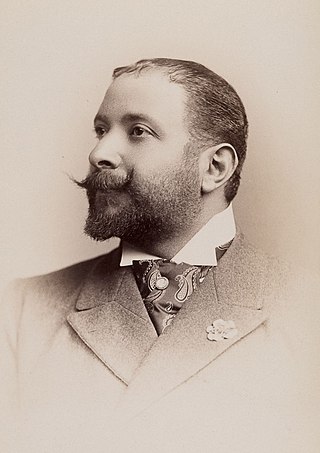
Mario Ancona, was a leading Italian baritone and master of bel canto singing. He appeared at some of the most important opera houses in Europe and America during what is commonly referred to as the "Golden Age of Opera".

(Giuseppe) Mario Sammarco was an Italian operatic baritone noted for his acting ability.
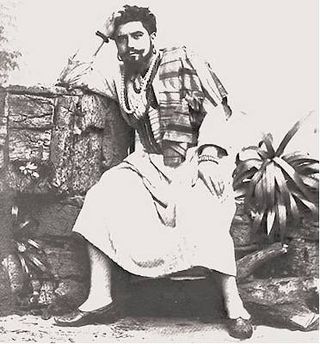
Maurice Arnold Renaud was a cultured French operatic baritone. He enjoyed an international reputation for the superlative quality of his singing and the brilliance of his acting.
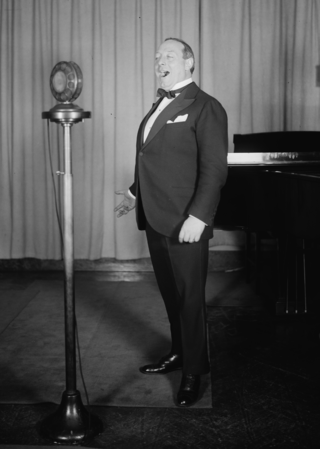
Giuseppe De Luca, was an Italian baritone who achieved his greatest triumphs at the Metropolitan Opera in New York City. He notably created roles in the world premieres of two operas by Giacomo Puccini: Sharpless in Madama Butterfly and the title role in Gianni Schicchi.

Antonio Scotti was an Italian baritone. He was a principal artist of the New York Metropolitan Opera for more than 33 seasons, but also sang with great success at London's Royal Opera House, Covent Garden, and Milan's La Scala.
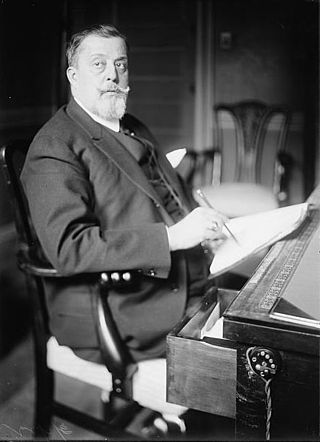
Giulio Gatti-Casazza was an Italian opera manager. He was general manager of La Scala in Milan, Italy, from 1898 to 1908 and later the Metropolitan Opera in New York City from 1908 to 1935.

Adam Didur or Adamo Didur was a famous Polish operatic bass singer. He sang extensively in Europe and had a major career at New York's Metropolitan Opera from 1908 to 1932.

Giuseppe Valdengo was an Italian operatic baritone. Opera News said that, "Although his timbre lacked the innate beauty of some of his baritone contemporaries, Valdengo's performances were invariably satisfying — bold and assured in attack but scrupulously musical."

Karl Gustaf Ingvar Wixell was a Swedish baritone who had an active international career in operas and concerts from 1955 to 2003. He mostly sang roles from the Italian repertory, and, according to The New York Times, "was best known for his steady-toned, riveting portrayals of the major baritone roles of Giuseppe Verdi — among them Rigoletto, Simon Boccanegra, Amonasro in Aida, and Germont in La traviata".

Dino Borgioli was an Italian lyric tenor. Praised by critics for his musicianship, he was particularly associated with roles in operas composed by Mozart, Rossini, and Donizetti.

Apollo Granforte was an Italian opera singer and one of the leading baritones during the inter-war period of the 20th century.
Enzo Mascherini was an Italian operatic baritone, one of the leading baritones of his generation.
The following discography is a work in progress. Currently it contains all known published recordings by Enrico Caruso. The recordings are listed chronologically by recording date, title, composer and matrix number. When more than one "take" was recorded for a selection, only the published take number appears after the matrix number; occasionally, multiple takes of the same selection have been issued. If only one take was recorded, no take number is listed after the matrix number. Matrix numbers should not be confused with catalog numbers.
Antonio Magini-Coletti was a leading Italian baritone who had a prolific career in Europe and the United States during the late 19th century and the early part of the 20th century. A versatile artist, he appeared in several opera world premieres but was particularly associated with the works of Giuseppe Verdi, Richard Wagner and the verismo composers. He was also an accomplished exponent of the bel canto repertoire.
Richard Fredricks is an American opera singer, and was one of the leading dramatic baritones of both the New York City Opera and the Metropolitan Opera. He has also appeared on network television, performing a number of times on NBC's The Tonight Show and guest-starred once in a 1971 episode of ABC's The Odd Couple.
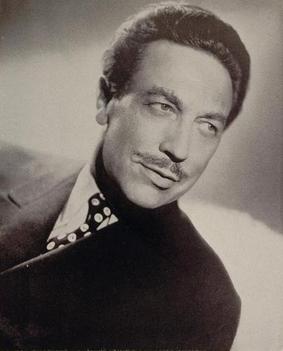
Richard Bonelli was an American operatic baritone active from 1915 to the late 1970s. Although he sang predominantly on stage in both light and grand operas, he also performed at various times on radio, in concerts and films, as well as on television.

Fernando Carpi was an Italian operatic tenor and later professor of singing.